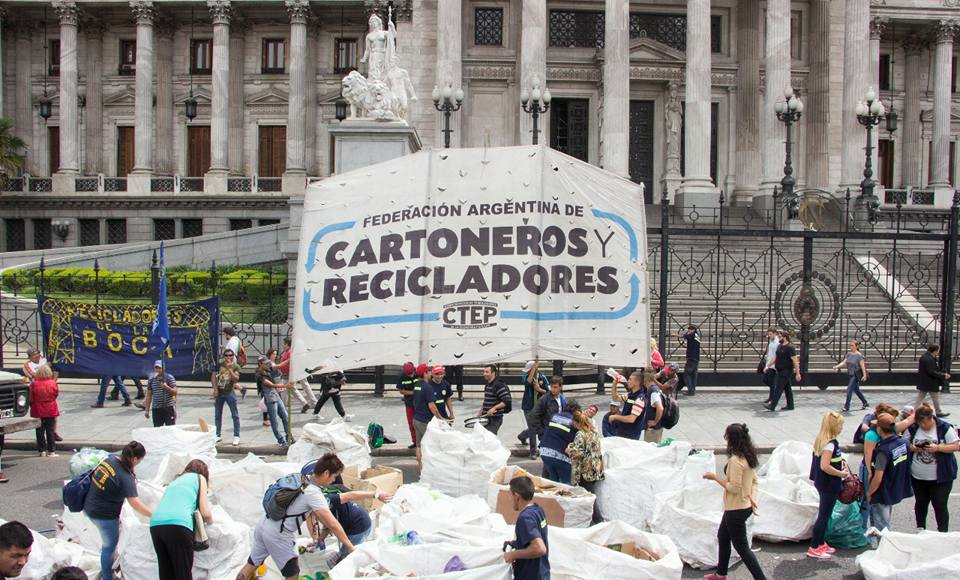RIO DE JANEIRO, BRAZIL – Urban recyclers in Argentina called on Tuesday for activities and rallies in various parts of the country to demand the approval of the Law of Packaging with Social Inclusion which will be presented today in Congress, and set budgets for environmental protection in packaging management.

One of the most crowded points was the Congress in Buenos Aires. Several recyclers, better known as cartoneros, participated in a recycling and sorting activity, and environmental promoters gave training talks on waste separation.
“We convened because we are asking for the law to be passed that will benefit many colleagues in the recycling business. We are hoping that there will be no more bottles in the bars, (…) that this will be useful for many independent recyclers and to generate more work,” said Paula Fernández, president of the Esperanza cooperative.
The Packaging Law contemplates in its project “implementing financial incentives to encourage manufacturers to design environmentally friendly products and to make producers responsible for the costs of handling their products at the end of their useful life”.
To achieve this objective, it proposes the creation of an “environmental tax and fund for the management of packaging and inclusive recycling”, which cannot impact the final price of the product by more than 3% and which is delimited based on factors such as recyclability, apparent environmental impact, and eco-design.
According to data from the recyclers’ organizations, 50,000 tons of waste are produced every day in Argentina. Half of them end up in one of the 5,000 open-air dumps in the country or a sanitary landfill.
They also denounce that “the 150,000 cartoneros who prevent the system from collapsing, work in terrible conditions, thousands of them do it in the dumps without toilets, water, or roof to cover themselves from the sun or rain”.

